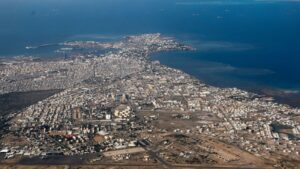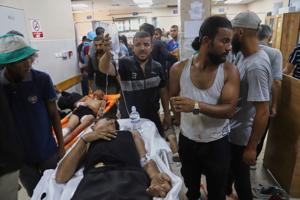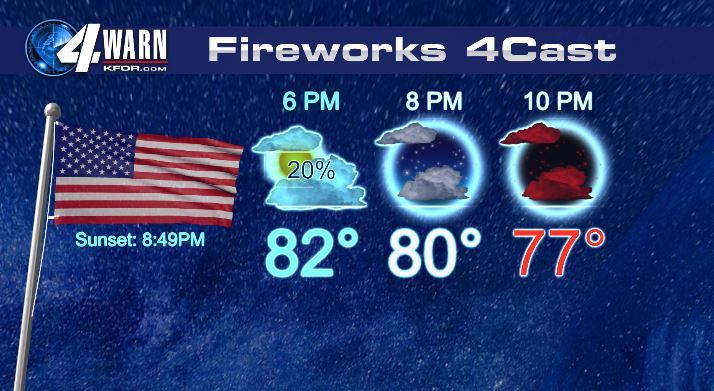Witnesses and medical personnel in Gaza report that an Israeli airstrike on a seaside cafe in Gaza City has resulted in the deaths of at least 30 people. Additionally, reports indicate that Israeli forces have killed 23 others who were attempting to secure desperately needed food aid. The events unfolded on Monday, contributing to a total of 74 fatalities in the region.
The strikes come amid a period of heightened tension between Israel and Palestinian groups, with violence escalating over recent weeks. According to local sources, the cafe was a popular gathering spot for residents seeking refuge from the ongoing conflict, making the attack particularly devastating. Meanwhile, the deaths of those seeking food aid underscore the humanitarian crisis facing Gaza, where shortages of basic necessities have become increasingly dire.
Background of the Conflict
The current escalation in violence traces back to longstanding tensions between Israel and Hamas, the militant group that governs Gaza. The latest round of hostilities was triggered by a series of events, including disputes over access to holy sites in Jerusalem and evictions of Palestinian families in the Sheikh Jarrah neighborhood. These issues have reignited a conflict that has simmered for decades, with both sides exchanging rocket fire and airstrikes.
Historically, the Gaza Strip has been a flashpoint for conflict, with periodic outbreaks of violence leading to significant casualties and destruction. The region’s political and economic isolation, exacerbated by an Israeli-Egyptian blockade, has left its population vulnerable to humanitarian crises.
Humanitarian Impact and International Response
The recent airstrikes have intensified calls from international organizations for a ceasefire and humanitarian aid. The United Nations and various NGOs have expressed concern over the rising civilian toll and the destruction of infrastructure critical to daily life in Gaza.
“The humanitarian situation in Gaza is dire. The recent violence has only compounded the suffering of its people,” stated a spokesperson from the International Committee of the Red Cross.
Efforts to broker a ceasefire have been ongoing, with Egypt and Qatar playing mediating roles. However, the path to peace remains fraught with challenges, as both sides have entrenched positions and demands.
Expert Opinions and Historical Parallels
Experts on Middle Eastern politics note that the current conflict bears similarities to previous escalations, such as the 2014 Gaza War, which resulted in significant loss of life and widespread destruction. Analysts suggest that without addressing the underlying issues, including territorial disputes and political recognition, the cycle of violence is likely to continue.
Dr. Yasmine El-Sayed, a political analyst specializing in Middle Eastern affairs, commented,
“The pattern of conflict and temporary ceasefires has been a recurring theme in the Israeli-Palestinian conflict. Sustainable peace requires addressing the root causes, not just the symptoms.”
Looking Ahead: Prospects for Peace
The international community continues to press for a resolution to the conflict, emphasizing the need for dialogue and compromise. However, with both sides holding firm to their respective narratives and demands, achieving a lasting peace remains elusive.
As the situation develops, the focus will likely remain on humanitarian relief efforts and diplomatic initiatives aimed at de-escalating tensions. The tragic events in Gaza serve as a stark reminder of the urgent need for a comprehensive solution to one of the world’s most enduring conflicts.
In the coming days, attention will be on diplomatic efforts and the potential for a ceasefire that could halt the violence and provide much-needed relief to the beleaguered residents of Gaza.























